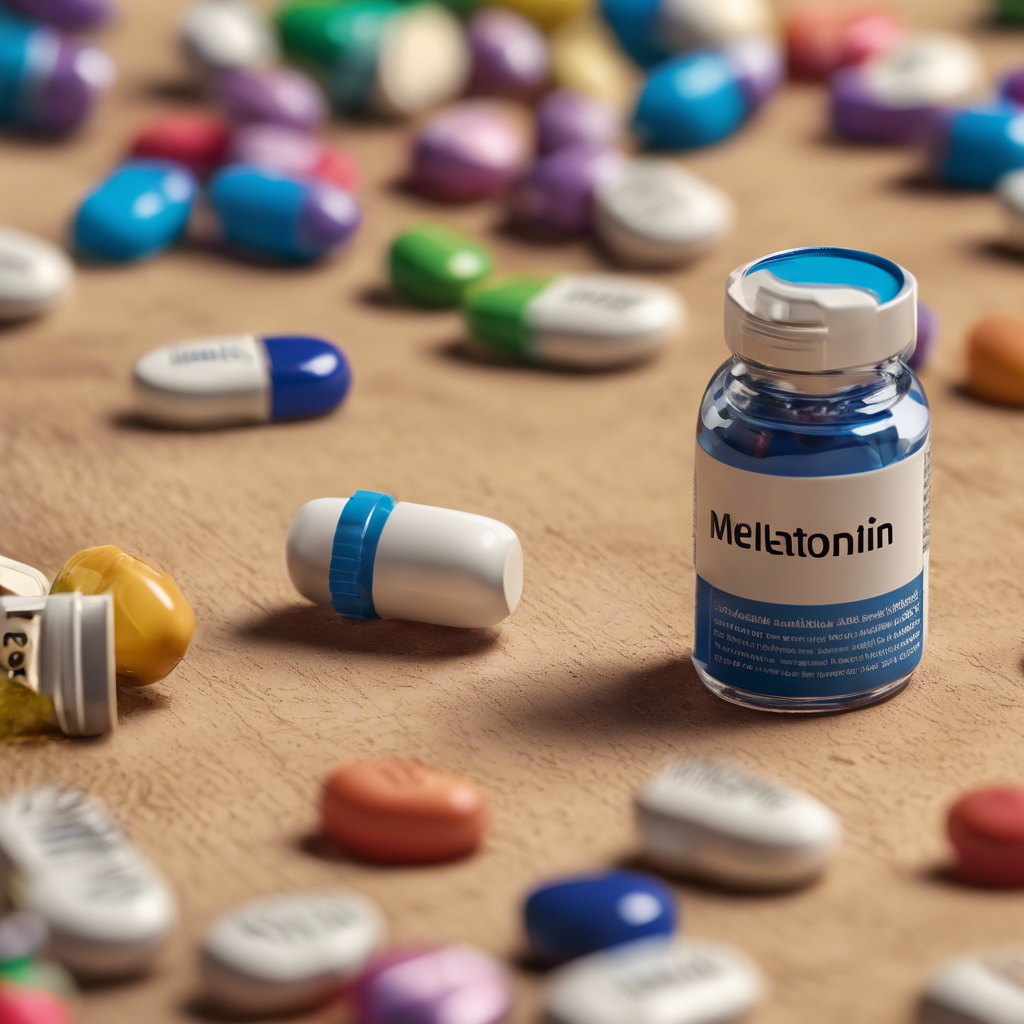Melatonin Supplement Risks For Children Highlighted As U.s. Industry Faces Call For Stricter Safety Standards
Published by Healthdor Editorial on April 19, 2024
In the wake of rising emergency room visits among children due to melatonin ingestion, the supplement industry in the United States is under pressure to enhance product safety measures.

Over the past decade, the United States has witnessed a significant surge in the use of melatonin supplements. Melatonin, a hormone produced by the brain during the dark hours to regulate the body's circadian rhythms, has become a popular over-the-counter remedy for sleep disturbances. However, this increase in use has not come without consequences. Between 2019 and 2022, approximately 11,000 children were admitted to emergency rooms after ingesting large doses of melatonin, often in the absence of adult supervision. The attractiveness of melatonin-laced gummies has led to these alarming incidents, with the majority of cases involving children between three and five years old. Notably, the safety and efficacy of melatonin as a supplement remain unverified by the Food and Drug Administration (FDA), underscoring the critical need for consumer caution and regulatory oversight.
Mislabeling and CBD Contamination Raises Concerns
Further complicating the safety landscape for melatonin supplements is the inconsistency between product labeling and actual content. A study in April 2023 found significant discrepancies in melatonin levels among products marketed as gummy bears. One brand contained up to 347% more melatonin than stated on the label, while another was found to have cannabidiol (CBD) instead of melatonin. CBD, currently banned as a dietary supplement by the FDA, is only prescribed for children over one year old with specific medical conditions involving severe seizures. The presence of CBD in these supplements adds another layer of risk, particularly due to the lack of data supporting its safety and efficacy in young children.
Industry Response and Regulatory Recommendations
In response to these issues, the Council for Responsible Nutrition, a leading trade organization for dietary supplements, has granted manufacturers a period of 18 to 24 months to make their products more child-resistant and to revise warning labels to highlight potential risks. The recommended label changes aim to emphasize the sedative effects of melatonin and warn against prolonged use or combining it with alcohol. These steps, however, are voluntary, raising questions about their sufficiency and the speed at which they will be implemented. The suggestion to secure packaging to prevent accidental ingestion by children is a crucial aspect of these recommendations, though federal law does not currently require such safety measures for supplement containers.
Conclusion: A Call for Proactive Safety Measures
As melatonin continues to be a go-to solution for sleep issues in the U.S., the associated risks, particularly for children, cannot be overstated. The industry's response to these challenges, while a step in the right direction, highlights the ongoing need for stricter regulation and oversight in the supplement market. Parents and caregivers must remain vigilant, ensuring that these supplements are stored out of reach of children and that the risks associated with their misuse are clearly understood. As we move forward, the health and safety of the youngest consumers must be a priority, prompting both industry and regulatory bodies to act swiftly and responsibly.
Latest Sources
- article Understanding Hernia Strangulation: Symptoms, Causes, and Treatment March 31, 2024
- article Understanding Type 2 Diabetes June 18, 2024
- article Understanding the T4 Test: What You Need to Know October 17, 2024
- story How I Overcame Cellulite with Anti-Cellulite Diets and Exercises March 02, 2024
- story Dealing with Elbow Pain: My Personal Journey to Recovery February 28, 2024
- article How to be Successful Parents September 24, 2024
- article Chronic Stomach Rash Similar to Psoriasis: Causes, Symptoms, and Treatment April 20, 2024
- article Understanding Liver Parasitic Tumors: A Health Guide for Americans June 18, 2024
- article Understanding N06AX16 Venlafaxine: Uses, Side Effects, and Precautions November 06, 2024
- article Financial Resources for Managing COPD February 12, 2024
Connect with Us